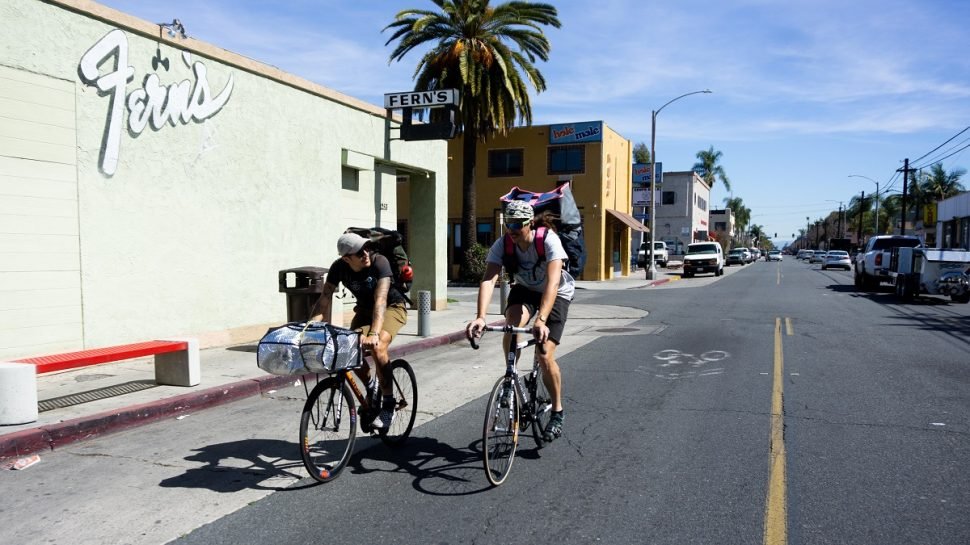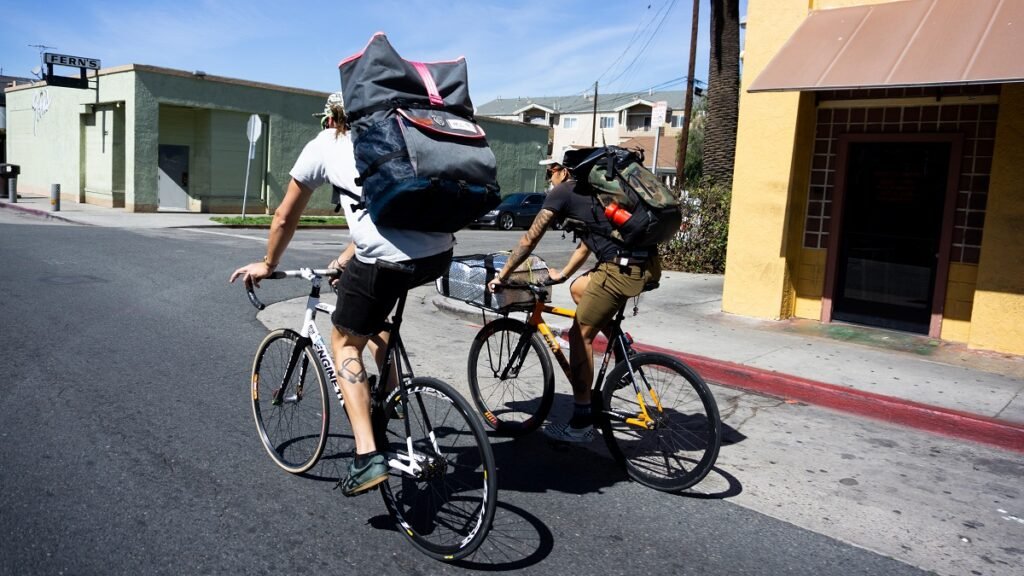Long Beach has officially lost one of its most unique (and green) businesses: Maritime Bicycle Courier, the nearly decade-long delivery service that used bicyclists, has permanently shut down.
Announced in a two-line goodbye via Instagram—”We are closed permanently. Thank you, Long Beach for the 10+ years of service”—owner and operator Langdon Taguiped said he appreciated the outreach for comment but ultimately he “wants Maritime to humbly rest in peace and leave it at that.”
In a time when being green is more important than ever, Maritime Bicycle Courier was ahead of the game
Taguiped’s sentiment is entirely understood, particularly from the bicycle and food communities it served: Given the onslaught of delivery apps intimately attached to corporate giants and massive capital, Maritime somehow beat the odds to survive nearly a decade when it began its operations in 2014.
Taguiped and then co-owner Bud Abille—each coming onto the scene with an extensive history in competitive cycling—directly addressed what the city was promoting yet not quite achieving: The most bike-friendly city in the States. With Maritime, it was a direct community response that there was a desire to actually live up to that name via sustainable delivery.
Bicycling advocate and writer Asia Morris said that, come 2018, “4th Street quickly became known as the ‘Maritime highway’ as riders, sporting their quintessential front racks, silver delivery bags, bulging backpacks—and a little sweat on the brow—were often seen pedaling to and from restaurants.”

The closure of Maritime Bicycle Courier is a hit to small business while highlighting larger issues
4th Horseman co-owner Jeremy Cross bluntly said the closure “sucks. We’re unsure what we’ll do for delivery now.”
His comment is likely to be refuted by the critics heckling, “Just use another delivery service.” But the fact that independently owned restaurants are increasingly depending on larger corporate entities is a frustration that has long put the restaurant industry into a major shift.
Even before the pandemic, DoorDash’s own 2019 report showcases the nightmare a delivery app can be: 96% of orders—nearly every single order—were modified, meaning people were treating restaurants more like personal chefs rather than, well, restaurants—without having to pay for a personal chef. One food order, clearly bypassing a proper catering order, totaled over $2,000. Even more, none of this convenience is passed onto the consumer; it lies solely on the restaurant since consumers refuse to pay the actual cost of such convenience.
And this was five years ago.

Let’s just be frank here: Third-party delivery apps—with billions of dollars of investment capital—have perpetuated a distorted business model that is dangerously rooted in consumer convenience. And that distortion results in an impact that lands solely on restaurants and workers.
There have been, like Maritime Bicycle Courier, valiant attempts at altering this capitalistic dynamic: Deepti Sharma, who founded the now-shuttered FoodtoEat in 2010, broke it down bluntly:
“We provided a lower-cost online ordering platform, charging restaurants only 10 cents per order,” Sharma said. “Instead, we charged the consumer a flat fee for the cost of convenience. Restaurant owners were immediately on our side, and we quickly signed up hundreds with our message of a fair business model. But we found that the hard part was convincing consumers to actually accept higher prices on delivery.
“After two years of unsuccessfully trying to get diners to pay fair delivery fees, we had to pivot our business to corporate catering or risk failing. We were edged out by large companies like Uber, DoorDash, and Postmates, which have raised (and spent) billions of dollars in their quest to own the market. That third-party model’s been rotten since the beginning, and the inequality it’s bred has been decades in the making.”
This has, no doubt, been fueled by the pandemic and has pushed the need to ask ourselves a very important question: Has our need for instantaneously appearing meals at our own front door, at genuinely low prices (no matter how expensive you think your delivery was) worth the displacement an entire industry while pushing hourly workers to become our own personal servants?


